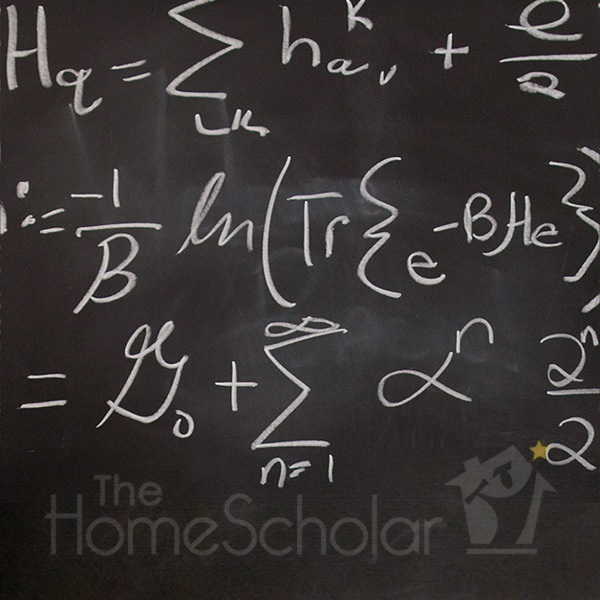What Is The Correct Math Sequence in High School?
Published on February 24, 2016 by LeeBinz
So, a question many high school homeschool families ask when planning to teach math is, “what is the order of math classes in high school?” Questions may be as specific as “is algebra 1 or geometry harder?”, “is pre algebra harder than algebra 1?”, “is algebra 2 for 10th grade?”, “is geometry higher than algebra 2?”, “what comes after algebra 2?”, or “what grade do you take geometry?” For most students, what comes first doesn’t matter. The most important thing is that your child is learning math consistently each year.

What is the order of math classes in high school? It may surprise you that the order of math covered doesn’t matter as much as ensuring math is taught for four full years in high school.
A high school transcript should include four credits of math. Four years of math is important because it’s often required for high school graduation. It’s also important because most colleges require a full four years of math. And it’s important to prepare your students for any college or career in the future.
Even if your child already has four or five years of math by the time they start high school, you still want to teach four years of math while they’re in high school (at high school age). However, that doesn’t mean your child has to do four years of upper level math, including calculus. It just means they should continue to work at their own level and keep moving forward every year.
Yes, it’s wonderful to complete calculus in high school, but not everyone is going to get there. Just because they don’t get to calculus doesn’t mean they can’t get into college! Cover math every single year regardless of the level they achieve.
There are two typical math sequences for high school :
Algebra 1 > Geometry > Algebra 2
OR
Algebra 1 > Algebra 2 > Geometry
Some textbooks follow one way, and some follow the other way. They all try to convince you their way is the right way! Mathematically, it doesn’t matter which one comes first, Geometry or Algebra 2, to be honest. However, your child might benefit if they take geometry before 11th grade, to prepare for the PSAT/NMSQT® and SAT®.
Register for my free class and learn the keys to home high school success no matter how challenging the topics (or your teens) can be! The 12 Keys to High School Success Webinar

Just know that, Geometry is completely different from algebra, much like biology is different from chemistry. Kids that hate algebra may love geometry. Introducing geometry in the middle gives kids a break. Geometry class also has some review of Algebra 1 concepts in it. As you balance numbers, you use some of the skills that you learned in Algebra 1. By completing Algebra 1 followed by geometry, your child gets a whole year of Algebra 1 practice before going on to Algebra 2. It can help students who are not secure in their Algebra 1 skills get those skills into their brain before they have to start Algebra 2.
There is quite a bit of geometry included on the PSAT/NMSQT®. In order to have a chance to earn the National Merit Scholarship, your child will have to complete Geometry by 10th grade. But you know, the National Merit Scholarship is only one reason to take the PSAT. Very few students earn the scholarship (only the top 1/2 of 1 percent in the nation). The other purpose for taking the PSAT/NMSQT® is to practice for the SAT®. In other words, the PSAT/NMSQT® has two purposes: for fun, and for profit.
Taking geometry first, when kids are in 10th grade makes sense. It can increase their test scores, thereby increasing financial aid from colleges. Geometry and algebra are quite different skills. But Geometry includes some Algebra 1 skills, so it’s a nice year-long review of algebra, giving kids a chance to really digest and become one with Algebra 1 concepts.
You can learn more about how to homeschool high school math in my article,High School Math without the Moaning.
Click Here to Join my Newsletter!
SAT®, AP®, and CLEP® are trademarks owned by the College Board, which is not affiliated with, and does not endorse, this blog post or The HomeScholar, LLC.
PSAT/NMSQT is a registered trademark of the College Board and the National Merit Scholarship Corporation.


